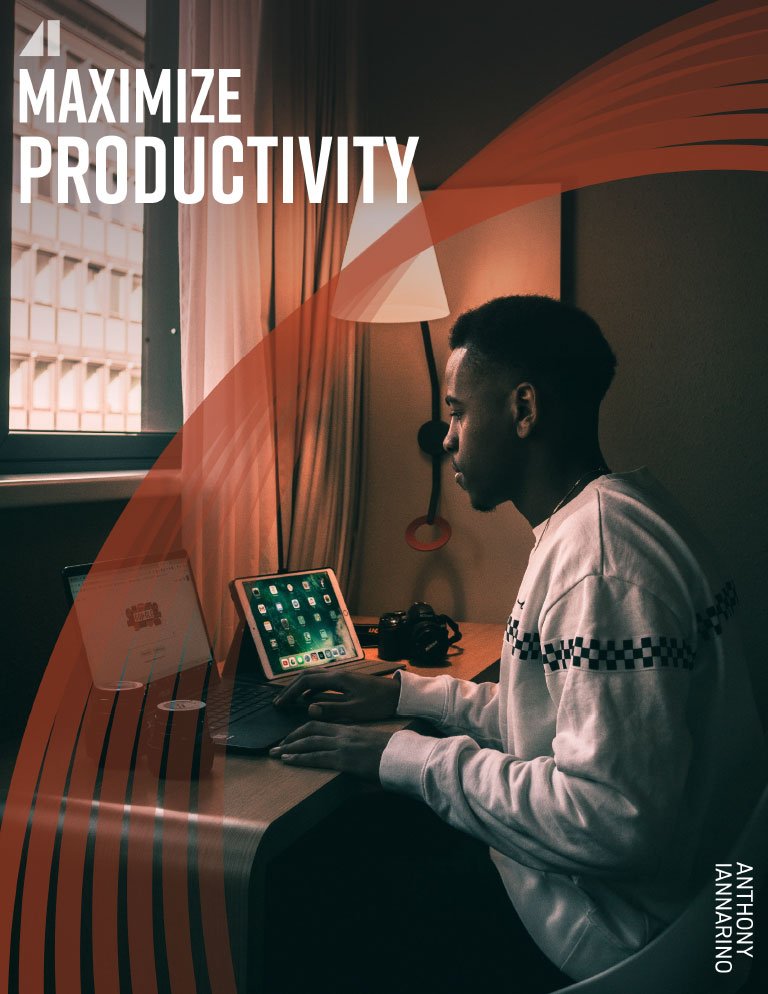The Gist:
- Paying attention to distractions, especially meaningless communications, takes time away from your priorities.
- You owe your best work to your most important outcomes, something enabled by short bursts of concentrated effort.
There weren’t nearly as many workplace diversions available thirty years ago. You might have received a phone call that interrupted your work or been cornered by a chatty co-worker who couldn’t resist their desire to talk to someone—anyone—but that was about it. The lack of distractions made it easier to focus on your work, allowing you to do more work of a much higher quality.
Your phone may not often ring these days, but it does chime, chirp, and vibrate every few minutes, notifying that you received an email, a text message, or an all-important like on your LinkedIn, Facebook, or Instagram post. Every app you add to your phone asks you to allow “notifications,” which should really be called “multiple interruptions to alert you to a whole legion of trivialities.” Sadly, the masses say “yes” to distractions and “no” to the few things that matter. The tiny jolt of dopamine often outweighs even the best intentions, particularly in the psychologically grisly lab experiment that undergirds social media.
Most of the working world works with their email inbox open, along with some other real-time chat app. Even though it is possible to shut your email inbox for hours at a time and to set your Slack status to “do not disturb,” the truth is that most people invite interruptions. Here’s the problem: you cannot do good work and be distracted at the same time. To fight the plague of distractions, start by turning off your notifications, closing your inbox, and quitting your browser. Then give yourself over to your work in short, concentrated bursts of no more than ninety minutes.
What You Owe Your Work
I have interviewed a number of writers, and the majority of them start writing very early in the morning—some as early as 3:30 AM—when most people around them are sound asleep. The reason they start early is to avoid any possible distractions. They believe they owe their work their full and undivided attention, and that writing well demands nothing less. (As I write these words, in fact, all the world around me is asleep—and only Ulysses, my dedicated writing app, is running on my computer.)
It’s important to recognize that when you turn your attention to trivialities, you deny attention to what is most important. On your deathbed, your greatest regret isn’t going to be how few clever tweets or Facebook posts you made. Neither will it be that you never quite reached “inbox zero” by hovering over the keyboard and responding to every prompt instantly.
So what do you owe your work? Are your outcomes important enough to command your focus for ninety uninterrupted minutes? Are they important enough for you to dedicate yourself to the task without allowing yourself to be distracted by interruptions, notifications, and things that are of no real value to you? I would argue that your work deserves nothing less than your full and undivided attention.

Short Bursts of Concentrated Effort
Dozens of research studies show that ninety minutes is about the extent of time a person can concentrate on a task before needing a break. That’s more than enough time to make major progress on a project or task. It’s also enough time to do quality work, something that requires concentrated effort. The reason successful and productive people do more work of a higher quality is that they exert concentrated effort in short, but meaningful bursts. There are only a few things that deserve the kind of intense effort that comes with your full focus and attention.
Your number of priorities always follows this exact pattern, without deviation: 1, 2, 3, 0, 0, 0, 0, 0, 0, 0. Adding a single priority after the number 3 effectively reduces you to zero priorities. Those three priorities, and only those three, should consistently demand your attention. And here’s a hint: unless your job is literally to answer email all day, your inbox is not your priority. For any sales or leadership role, email can wait.
The Argument for Time Blocking
If you devoted ninety minutes to your priorities, three times a day, you’d devote 4.5 hours to your most important projects. Even in an eight-hour workday, that would leave you another 3.5 hours—about 44% of your day—to respond to anything and anyone who requires your time and attention.
By blocking your time, you give yourself the gift of time, but you also demonstrate which outcomes you really want or need to create with the time you have available. The time is there—you just have to use it to pursue focused, high-quality work.
Do Good Work
- Identify your three most important priorities and write them down.
- Turn off any and all distractions, then block off some time to give your work your full focus and attention.
- Do ninety minutes of concentrated work, without interruption, three times a day.

Get the Free eBook!
Take control. Maximize your productivity.
Being productive means getting important things done. The stuff that moves you toward accomplishing your most important goals. The strategies in this eBook will have you producing the results you want.
Download Now







.jpg?width=768&height=994&name=maximize-productivity-ebook-v3-1-cover%20(2).jpg)


